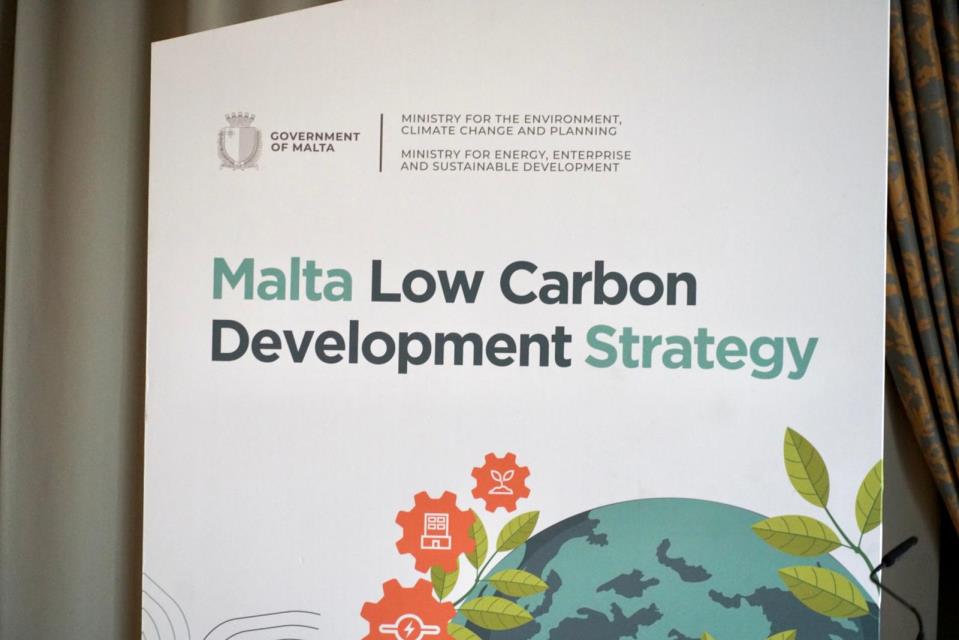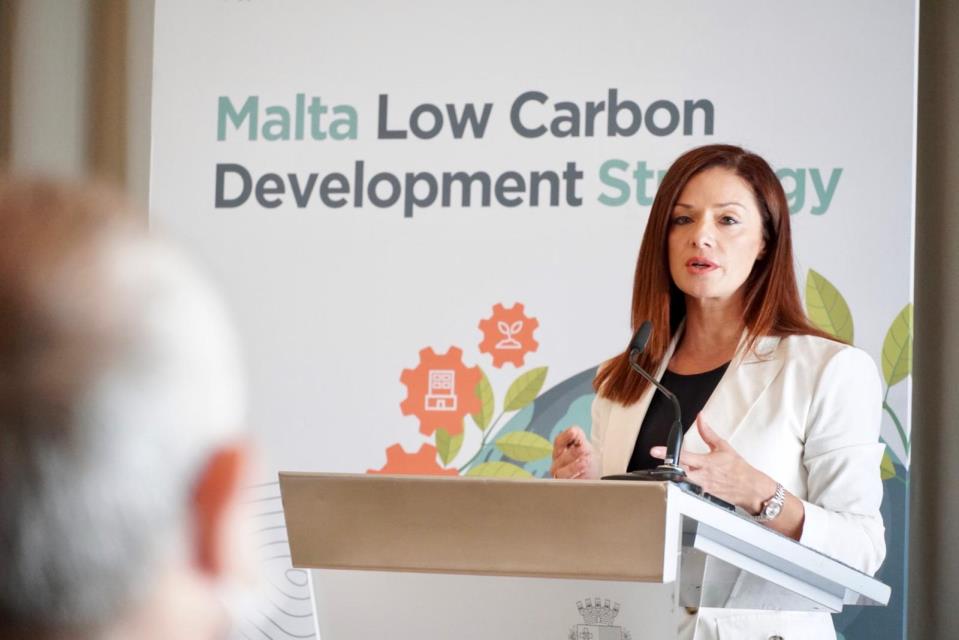The Government has announced its 30-year strategy in order to tackle climate change and reach carbon neutrality by 2050.
The “ambitious” Low Carbon Development Strategy for Malta includes the electrification of vehicles and energy-efficient buildings.
This was announced by Minister for the Environment, Climate Change and Planning Aaron Farrugia and Minister for Energy, Enterprise and Sustainable Development Miriam Dalli.
Climate change has been a topic of ever-increasing interest and research in this field has been foreshadowing a devastating future for the world and future generations if action is not taken. In view of this, a number of European and International frameworks, initiatives and strategies have been announced, such as the European Green Deal and The Paris Agreement of 2015.
Malta is following these footsteps, also due to the obligations it has as a European Union Member State to reach carbon neutrality by 2050.
Minister Farrugia said that the time has come for the economy to start shifting towards greener practices.
“I’m not being dramatic when I say that the burden lies on our shoulders. We have aims which are ambitious, which are both for 2050 and also 2030,” he said.
The Minister explained that this will require changes in terms of the energy, buildings, transport, industry, waste, agriculture and water sectors. This also coincides with the “gradual shift” towards Malta's national 2030 climate goal, leading up to the 2050 one.

The Energy and Transport sectors are the main contributors to Malta’s emissions, making up 34% and 33% of emissions respectively.
The LCDS plan will be addressing a list of 10 concrete measures: Extended free Public Transport; Electrification of vehicles and a roll-out plan for the installation of public electric vehicles charging points; Electrification of public transport; Active Transport and Remote Working; PV systems; Energy-efficiency single measures and retrofitting to achieve nearly zero-energy buildings (NZEB) level such as solar water heaters, heat pumps, roof and wall insulation and double-glazing; Schemes for deep renovation; Support scheme for services and industry; pre-sorting and High Bio-Waste Capture and; Waste Prevention measure.
The Government will be at the forefront to try to introduce these in their sectors where they can, the Minister said.
"With the Low Carbon Development Strategy (LCDS), the government will continue gaining ground and set decarbonisation pathways for the next thirty years and ensure carbon emissions reductions across the main sectors of the economy,” Farrugia said.
The Minister said that certain schemes will be announced to incentivise businesses to switch to more sustainable energy. The government will also encourage this switch among the public with the promotion of public transport – which will gradually become free for everyone – as well as other modes of “active transport” such as electric bicycles.
“We are not only reshaping our mobility, energy, waste and building sectors into more sustainable ones, but we are looking to invest in greener jobs, digital technologies and low carbon innovation opportunities. The post-pandemic era must be ecological and environmental, because taking action on climate is no longer an option,” Farrugia said.

The Low Carbon Development Strategy hence reaffirms the government’s commitment towards improving sustainable mobility and towards increasing energy-efficient and secure energy supply. Government is equally determined to further smoothen the country’s need to transition towards cleaner and more sustainable modes of transport, the Minister said.
“Whereas before it was a topic in the scientific sphere, the Maltese population now knows what climate change means. So we need to continue pushing this narrative when it comes to climate change,” Farrugia said.
From her part, Minister Dalli said that this opportunity will also help Malta to “strengthen our economy”.
She also mentioned that the recent announcements by the government regarding the construction of a second interconnector and the hydrogen-ready pipeline will also help with this plan.
“We are being clear in terms of what direction we want to take this country in. It is an ambitious plan that we want the country to move towards,” she said.
Meanwhile, a green paper with the name of ‘Towards Cleaner Vehicles on our Roads’ will determine the public’s views on such a topic and as well as encourage the general public to contribute to the vision of a Maltese policy for cleaner vehicles.
Stakeholders and the public in general are being invited to submit their comments by 13th July 2021 on Low Carbon Development Strategy - [email protected]; Green Paper Towards Cleaner Vehicles on our Roads – [email protected]. Both documents are accessible through environment.gov.mt.